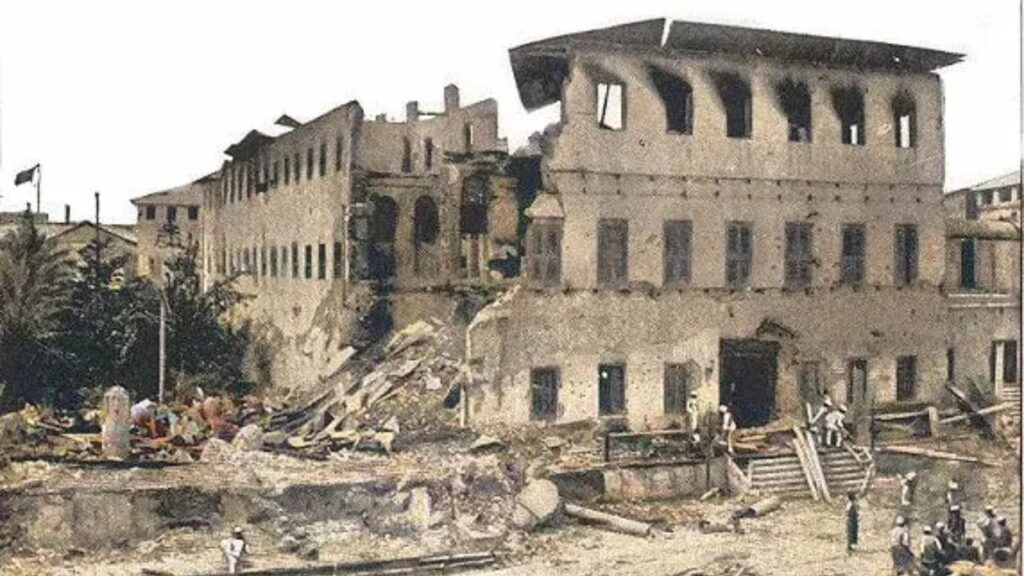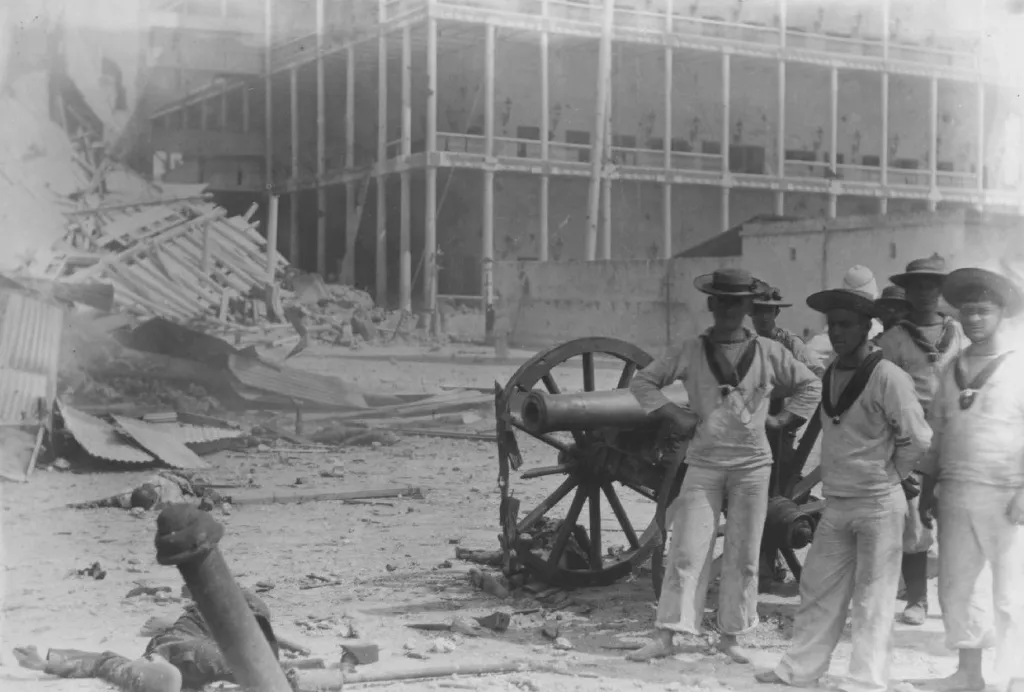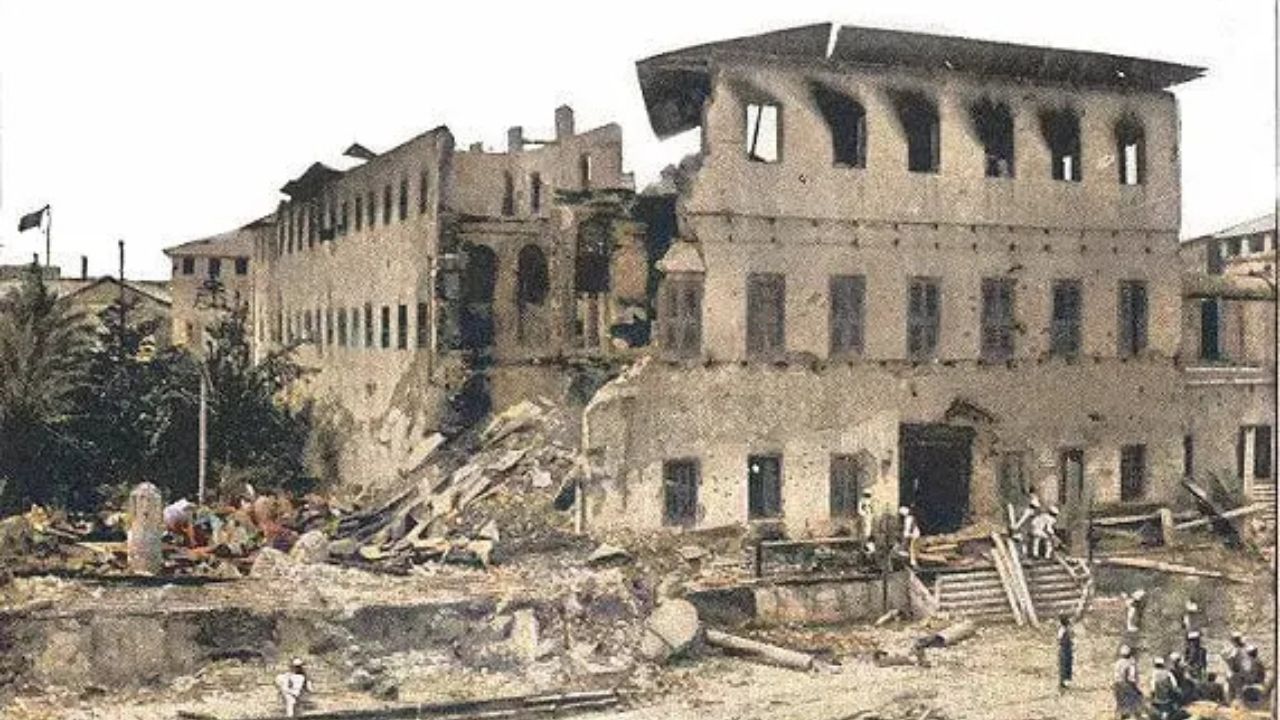The Shortest War in History: The Anglo-Zanzibar War of 1896
The Anglo-Zanzibar War of 1896 holds a very special record as the shortest war in history. It only lasted for about 38 minutes on August 27, 1896. This short but intense fight was between the British Empire and the Sultanate of Zanzibar. The British won easily. Even though it was short, there were complicated political tensions and events that led to it.
Why was the Anglo-Zanzibar War of 1896 the Shortest War in History?
On the morning of August 27, 1896, the British Royal Navy bombed the palace in Zanzibar. It was turned into ruins in just 38-45 minutes. After the bombing by the ships, British soldiers went onto the island and didn’t face much resistance. This quick and strong attack ended the fighting as soon as it started. This made the Anglo-Zanzibar War of 1896 the shortest armed fight ever recorded.
The Background of Zanzibar and British Control
Zanzibar, a group of islands in East Africa near modern Tanzania, was very important strategically for the British Empire. It had a lot of natural resources and was located on important trade routes in the Indian Ocean. Zanzibar became a British protected state in 1890. Even though there was still a local Sultan, the British really controlled the politics and the military in the area.
Britain was interested in Zanzibar because of trade and because they wanted to stop the slave trade in East Africa. Driven by both good ideas and their imperial plans, ending this practice was important to Britain. Zanzibar was a major center for selling slaves, which made it a target for British involvement.

How did the Anglo-Zanzibar War Start?
The immediate reason for the war was the sudden death of the Sultan, Hamad bin Thuwaini, in August 1896. He was a supporter of the British. It’s possible that his cousin, Khalid ibn Barghash, poisoned him. Khalid then declared himself the new Sultan without the British saying it was okay.
The British government didn’t agree with Khalid becoming Sultan. They wanted their own choice, Hamoud bin Mohammed, who would be better for British interests. The British were worried about Khalid taking power, especially because there were rumors that he supported Germany at a time of strong colonial competition in Africa, known as the Scramble for Africa.
Khalid prepared for a fight by strengthening his palace with 2,800 followers, cannons, and machine guns. However, these defenses were no match for the British navy ships that had gathered in Zanzibar’s harbor.
The British gave Khalid an ultimatum on August 27, 1896, at 9 am, demanding that he step down. Khalid refused, and within minutes, the palace was destroyed. Some reports say the war ended very quickly after it started, around 9:40 am. About 500 people from Zanzibar were killed, while only one British sailor was injured.
Khalid ran to the German consulate to seek safety. Even though he escaped being captured at first, the British caught him years later during World War I.

What Happened After the Anglo-Zanzibar War?
After the British won, they put their preferred Sultan, Hamoud bin Mohammed, in charge as someone they could control. This strengthened British control over Zanzibar for many years, making their power in East Africa stronger.
The war was a harsh reminder of the great power of European colonialism in the 19th century. It showed other African rulers that fighting against the imperial powers was likely pointless.
Zanzibar Under British Rule
The Zanzibar Protectorate remained under British control until December 10, 1963, when Zanzibar became independent and joined the Commonwealth of Nations. Even though it was short, the Anglo-Zanzibar War showed the large political and military influence of the British Empire at the height of its colonial power.
The Legacy of the Anglo-Zanzibar War
The Anglo-Zanzibar War of 1896 is important in history not because it was big, but because it was remarkably short. Even though it only lasted 38 minutes, it highlighted the dominance of British imperialism and the harshness of the events that led to the Scramble for Africa. Understanding the legacy of this war helps us see the bigger picture of European colonialism in the 19th century and its long-lasting effects on places like Zanzibar. Today, the story of the shortest war in history serves as an interesting, though serious, look back at a time when empires ruled.
Also Read: Oak Island Treasure: History, Theories, and the Ongoing Mystery
For More Updates Please Join :Facebook



